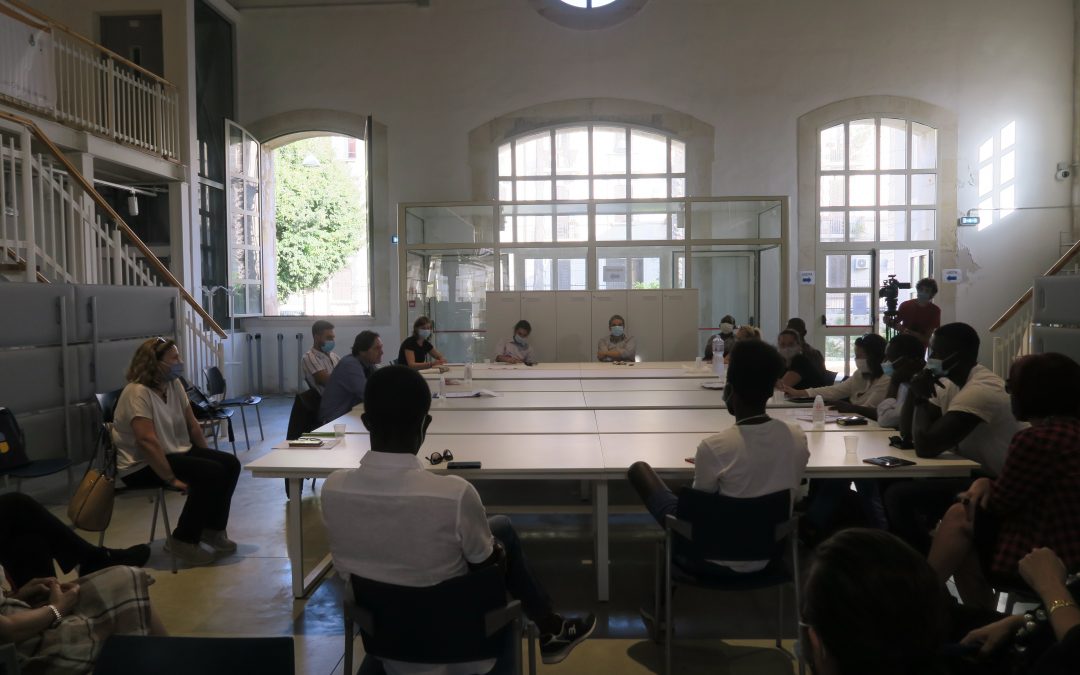During the past few weeks the first meeting with the discussion groups took place at the Urban Center of Syracuse. The event was organized by the project Comune dei Popoli in order to involve and encourage dialogue between public and private social operators, institutions and stakeholders.
Main topics of the meeting
• During each meeting, a facilitator defined the rules of intervention and introduced the topics:
• Dialogue between priorities: expectations in comparison;
• Words: vehicles in circle between people;
• People as a resource.
The chosen topics are the result of details and suggestions collected during the interviews regarding immigration issues.
DIALOGUE BETWEEN PRIORITIES AND EXPECTATIONS IN COMPARISON: WHAT WE FOUND OUT
The purpose of this first meeting was the alignment, or the acceptance of a possible misalignment, between people, roles and functions of public services in the area of Syracuse. Specifically, at the round table, which was attended by mediators, public officials, representatives of the third sector and future users of the office Comune dei Popoli, an attempt was made to understand what were the first urgencies to respond to in the process of integration of foreign citizens. The first challenge that emerged from the discussion was related to the difficulties of linguistic understanding between operators and users. A challenge that led the group to express the need to create language “forms” that can help, facilitate access to services and avoid disorientation, i.e. the condition in which a user might feel without any references.
INTEGRATION: PROCESSES AND MEANINGS
During the two hours of discussion we talked about the importance to underline that for a successful integration of migrant citizens into the territory and social fabric it is essential not to forget their history, their experiences and their origins, also made of culture, language and religion. It also emerged that the factors to be perceived as obstacles to integration and inclusion paths are the complexity of bureaucracy and the resistance of prejudices.
All participants agreed on the great importance of abandoning deep-rooted prejudices, both by the operator and by the migrant, as well as knowing and recognizing the verbal and non verbal languages of the person one is dealing with. At the same time, simplifying procedures (even if only through the use of a more effective and basic communication) and deconstructing some bureaucracy processes, could be the key to build a society formed by different cultures. Finally, exercising empathy is considered by all participants as a fundamental step to reduce the current presence of prejudices rooted in our society.


